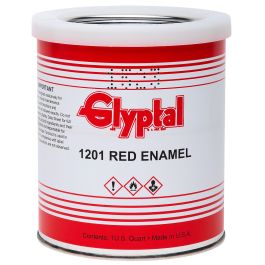Hi all,
I guess the scope of this subject is so large that it could have an entire forum of it’s own but I guess I’m not questioning how to fix individual oil leaks but rather the philosophy of why British bikes have such a reputation for being totally incontinent. In fact many non riders who couldn’t name a single British model will weigh into any discussion of old bikes with highly derogatory statements about how much oil puddles under a British bike overnight.
I should state from the outset that my 3 bikes (Commando, T140 & T160) are all surprisingly oil tight but never so oil tight that a ride in dusty conditions won’t show up mists as dirty patches somewhere on the engine.
The Trident obviously must be more prone to leaks simply because it has more engine cases and other components to be the source of potential leaks. The Commando of course has the rather poorly conceived single bolt retaining a very large chain case, not to mention the need to move the gearbox to adjust the primary chain. But beyond this, they just seem to have a propensity to leak, be it fork seals, metal to metal static seals or other oil seals. Yes, you can get them pretty good but only with far more attention to detail than would be required on a similar Jap bike, where, as long as the components are reasonably clean and a gasket or good quality sealant is used, you can be reasonably assured of a perfect joint. There are some areas that are just plain bad design, the clutch cable entry into a Trident’s chain case for example but other leaks seem to defy logic.
I think perhaps that the width of the joint might be narrower than on some similar Japanese cases and maybe the vibration associated with 360’ twins might cause flexing. Perhaps even poor tolerances in the machining. As the British market share declined in the early 70s and their faults became more apparent in comparison to the large Japanese opposition, it’s a wonder they didn’t take simple steps to remedy the problem like running an O-ring groove around the problem areas.
Any way, this is all just idle speculation. As for my Mk 2, it’s nemesis is an annoying very slight weep from the RH cylinder head joint, so small to be irrelevant except that I have 10 km of dirt road in and out of my place. I really can’t bring myself to remove the head to try to cure it.
Having said all that, the old Norton still puts a smile on my dial and on the fast mountain roads around here, still would take considerable commitment on the behalf of a rider of a far more modern machines to get in front of it. It amazes me just how well it does actually go, with or without the odd drop of oil.
regards
Alan
I guess the scope of this subject is so large that it could have an entire forum of it’s own but I guess I’m not questioning how to fix individual oil leaks but rather the philosophy of why British bikes have such a reputation for being totally incontinent. In fact many non riders who couldn’t name a single British model will weigh into any discussion of old bikes with highly derogatory statements about how much oil puddles under a British bike overnight.
I should state from the outset that my 3 bikes (Commando, T140 & T160) are all surprisingly oil tight but never so oil tight that a ride in dusty conditions won’t show up mists as dirty patches somewhere on the engine.
The Trident obviously must be more prone to leaks simply because it has more engine cases and other components to be the source of potential leaks. The Commando of course has the rather poorly conceived single bolt retaining a very large chain case, not to mention the need to move the gearbox to adjust the primary chain. But beyond this, they just seem to have a propensity to leak, be it fork seals, metal to metal static seals or other oil seals. Yes, you can get them pretty good but only with far more attention to detail than would be required on a similar Jap bike, where, as long as the components are reasonably clean and a gasket or good quality sealant is used, you can be reasonably assured of a perfect joint. There are some areas that are just plain bad design, the clutch cable entry into a Trident’s chain case for example but other leaks seem to defy logic.
I think perhaps that the width of the joint might be narrower than on some similar Japanese cases and maybe the vibration associated with 360’ twins might cause flexing. Perhaps even poor tolerances in the machining. As the British market share declined in the early 70s and their faults became more apparent in comparison to the large Japanese opposition, it’s a wonder they didn’t take simple steps to remedy the problem like running an O-ring groove around the problem areas.
Any way, this is all just idle speculation. As for my Mk 2, it’s nemesis is an annoying very slight weep from the RH cylinder head joint, so small to be irrelevant except that I have 10 km of dirt road in and out of my place. I really can’t bring myself to remove the head to try to cure it.
Having said all that, the old Norton still puts a smile on my dial and on the fast mountain roads around here, still would take considerable commitment on the behalf of a rider of a far more modern machines to get in front of it. It amazes me just how well it does actually go, with or without the odd drop of oil.
regards
Alan

